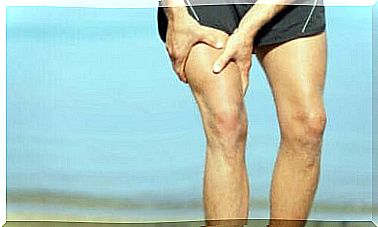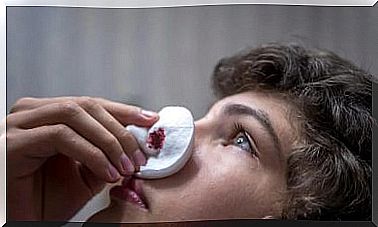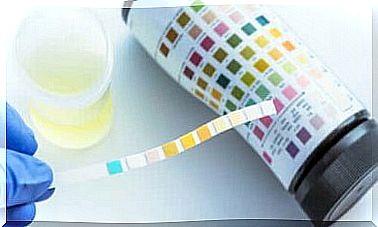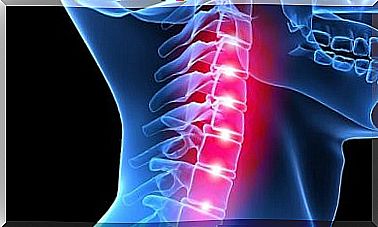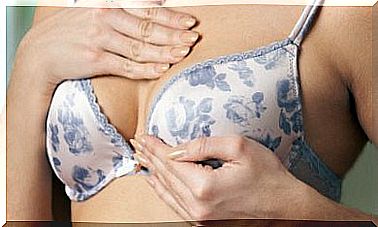Why Do Mosquitoes Bite And Who Is The Most Vulnerable?
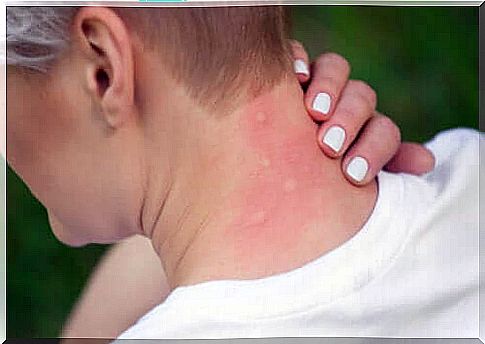
Mosquitoes bite and interrupt sleep with their constant buzzing. In addition, they leave redness, burning and swelling, and are capable of transmitting many diseases.
Dengue fever, malaria, zika, West Nile virus and Chikungunya fever are just some of the diseases that these infected insects can cause, so preventing them from biting is so important. But why do mosquitoes bite ? Find out the answer to this question by reading the article below.
Why do mosquitoes bite us?
To begin with, we need to clarify that not all mosquitoes bite. There are about 3,500 species of these insects, and only three of them seek our blood: Anopheles, Culex, and Aed es.
Similarly, only female mosquitoes are responsible for bites, as they need protein and other chemicals in the blood to produce and lay eggs. Therefore, this action is specific to females only.
Overall, a female mosquito can lay 30 to 300 eggs, sucking our blood only once. You need to drink again to complete the formation of more eggs.
Male mosquitoes, on the other hand, do not bite because they eat nectar and the juices produced by plants. Females can also live without sucking blood, but the three species we mentioned need it to breed.
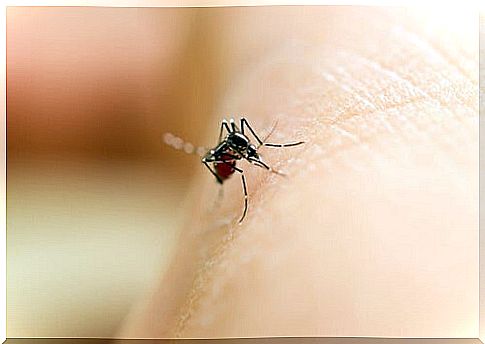
Why do we itch so much when mosquitoes bite us?
When biting, female mosquitoes stick their mouthpieces under our skin and inject a little saliva to prevent clotting and blood flow while sucking. For its part, the immune system reacts to chemicals in the insect’s saliva, which causes various reactions: redness, swelling, and itching.
So these reactions are the most common. However, children, people with a weakened immune system, and adults who have not experienced a previous sting usually respond with more severe symptoms. These include fever and hives.
Do mosquitoes bite more certain groups of people?
While this may seem unfair, the answer is yes. Research suggests that about 20% of the population has a particularly attractive blood for mosquitoes. Likewise, entomologists have discovered other factors that may make you more attracted to these insects.
There are many different factors that make you a favorite mosquito victim. The most famous and scientifically proven ones are listed below.
1. Mosquitoes bite more people in a certain color of clothing
Mosquitoes use their visual sense to locate their prey. Research suggests that they are more attracted to dark colors like black, green, and red. As you might have guessed, if you wear clothes in these shades, you will be the target of more attacks.
2. Blood group
Female mosquitoes need our blood proteins to produce eggs, so it’s not surprising that they prefer certain blood groups more than others. Research has shown that people with blood type 0 are twice as attractive as people with blood type A, while people with blood type B are somewhere in the middle.
3. We emit carbon dioxide
Mosquitoes have the ability to sense the carbon dioxide we exhale when we breathe. Therefore , the more we exhale, the more susceptible we are to their bites. In general, our production of this gas increases when we exercise or have significant body sizes.
In the same way, it should be remembered that when exhaling through the nose and mouth, we draw more mosquitoes to the head area. This explains that we hear their incessant buzzing overhead at night.
4. Chemicals and body temperature
Mosquitoes can also detect their prey, they can smell lactic acid, uric acid, ammonia and other compounds released by sweat. They also have a strong liking for people with high body temperature.
Consequently, being active makes you more susceptible to mosquito bites due to increased lactic acid secretion and higher body temperature. On the other hand, there are also genetic factors that influence the amount of uric acid and other substances that are secreted.
5. Bacteria present on the skin
Scientific studies have shown that the type and amount of bacteria present on the skin can increase our susceptibility to mosquito bites. People who have the highest amount of certain types of skin microbes attract the most.
This factor in particular explains why some of these insects pull so much around the ankles and feet. These regions abound in bacteria.
6. Pregnancy
According to studies, pregnant women are more attractive to mosquitoes than those who are not expecting a baby. This is because pregnant women exhale more carbon dioxide (about 21% by volume) and that their body temperature is higher.
7. People who drink beer bite more mosquitoes
A 2002 study linked alcohol consumption to the fact that mosquitoes bite more intensely. Scientists found that those who drank beer were more attractive to these insects than those who did not.
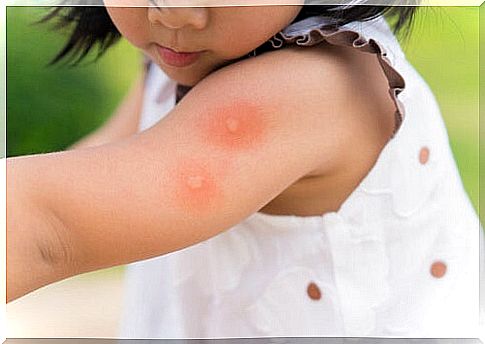
How to prevent mosquito bites?
There are many activities that you cannot stop doing just to avoid being bitten by mosquitoes. However, there are steps you can take to prevent discomfort. And most of all, the most important thing will be to reduce the risk of infection with diseases. To do this, follow the instructions below:
- Use insect repellent.
- If possible, wear long sleeves, pants and socks.
- Choose bright clothes.
- Avoid going outside at dawn and dusk: mosquitoes are most active during these hours.
- Eliminate insect habitats such as stagnant water tanks.
- Keep mosquitoes away from home.
Some people are more attractive to mosquitoes than others
Out of 3,500 species of mosquitoes, only three cause bites, and they are limited to females. Female mosquitoes bite to obtain nutrients from the blood of the victim for the production and laying of eggs.
In addition, there are people who are more attractive to mosquitoes. These include pregnant women, people who drink beer, people with blood type 0, people who like exercise, and people who have certain types of bacteria on their skin. This does not mean that these conditions or these habits need to be changed. However, the idea is to minimize your risk by taking the measures we have discussed in this article.
